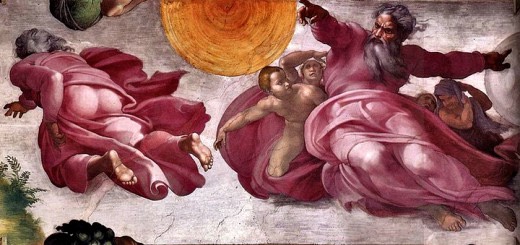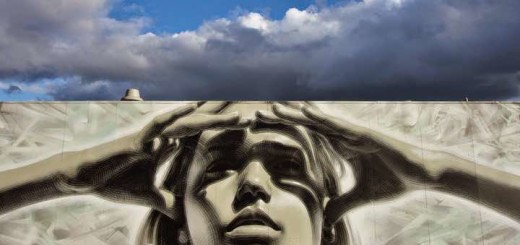The priestly vocation of LGBT+ people. Being priests like Jesus
Biblical meditations by Don Fausto for “Profumo di Vita!”, retreat for young LGBT+ Christians and their groups (6-8 May 2021)
Meanwhile, the Passover of the Jews was approaching and Jesus went up to Jerusalem. He found in the temple people selling oxen, sheep and doves and, sitting there, the money changers. Then he made a whip of cords and drove everyone out of the temple, with the sheep and the oxen; He threw the money changers' money to the ground and overturned their stalls, and to the dove sellers he said: "Take these things away from here and do not make my Father's house a market!".
His disciples remembered that it is written: Zeal for your house will devour me. Then the Jews spoke up and said to him: “What sign do you show us to do these things?”. Jesus answered them: "Destroy this temple and in three days I will raise it again." The Jews then said to him: "This temple took forty-six years to build, and will you raise it up in three days?" But he spoke of the temple of his body. Then when he was raised from the dead, his disciples remembered that he had said this, and they believed the Scripture and the word spoken by Jesus. (John 2, 13-22)
Jesus goes to the temple a few days before Easter, when the lamb will be sacrificed in the houses, the sacrifice that awakens the memory with its smells of blood and slavery, of existential dungeons and alienating devotions to the "pharaohs" of the day. Easter brings the scent of a future of redemption, freedom, people, God's concern.
At the temple, however, smells of animals and incense smelling of hypocrisy. The prophets had already shouted against this cult, telling God very harsh words: "Stop submitting useless offers; incense is an abomination to me, I cannot bear crime and solemnity” (Isaiah 1:13). Even in the psalms there are terrible expressions: “I will not take calves from your house, nor goats from your folds. Shall I eat the meat of bulls? Shall I drink the blood of goats?” (Ps 50,9.13). Jesus could not remain silent and overturns everything, a symbolic overturn that revolutionizes worship and priesthood.
In Jerusalem the temple, divided into increasingly exclusive spaces, stages a cult based on the separation between sacred and profane, pure and impure, worthy and unworthy; a cult separated from life, silent, moralistic. The relationship with God is external and expressed by dead things; is regulated by others; only those who match are admitted
full to a single, pre-established, unquestionable and selective model.
Doesn't it resemble the experience that LGBTQI+ people sometimes have in different living environments?
The temple cult is a self-reproducing and sterile cult; leaves life free to roam among any injustice. It is a "consumer" cult made with substitute animals, "sacrificed" to appease a capricious and angry god, who seems to take life away from his own creatures; it is destined to fail and in fact of the temple "not one stone will remain upon another" (Lk 21,6). This cult is an ever-present temptation for the "Pharisee" that everyone carries within!
That day Jesus exposed his body with sensational gestures to express his "heart". In the Jewish mentality the “heart” is the center of the whole person: from there the blood – seat of the “vital breath” – which brings energy and breath. In the heart we live listening to the promises of God and faith, the alliance of the "commandments" is renewed for a good life, a
earth in peace, a creation protected. For this reason the prophets asked to "circumcise" the heart (Jer 4:4) to share with God justice and brotherhood on earth and joy and communion "in heaven". In the heart the will to walk in hope, the decision to live in charity; obedience to the will of the Father. This is what Jesus did (cf. Phil 2:8; Heb 5:8).
The life of Jesus generally takes place outside places of worship; he talks about his body as a "temple" and the gestures are his cult, filled with the Spirit of God. Its "liturgy" is inevitably secular, popular, rooted in everyday life! It has no hierarchical ranks, because everyone brings themselves into play. It is true and genuine, because it is necessarily devoid of
rites to be repeated, but create the right gesture for the occasion within the relationship of the moment*. He is a priest "in his own way" when he cries, consoles, listens, speaks, heals. His body is the temple of God who walks with men, free and light to reach them everywhere, like the tent at the time of the exodus; tent of flesh and blood "not made with human hands" (Acts 17.24; Heb 9.11-14), when the Word became flesh and came to live among us (Jn 1.14).
Jesus offers himself to contribute to the transformation of other people's lives and relationships. He is fruitful with all of himself! It is offered for unite to God, gathering a people, like that day on the meadow when he enlightened hearts with his word and broke the loaves for sharing. There were no walls to separate, no selections at the entrance, no one was forced to conform, but everyone was called to identify their own path to get closer to Jesus.
The cult of Jesus is a daily and risky concrete and physical bet on oneself; His body expresses the “devotion” of the heart, having bet one's life by betting everything on the will of the Father for a contagious resurrection. And in the cross he finds the paradigm and the pinnacle, when his naked body is exposed and offered, bringing to fruition the life decisions matured in the "heart" (Jn 19.30). On the altar of the cross the body is wounded, the side open and we seem to glimpse the "heart", which is even more visible in its "standing" on the cross! A very tenacious and tender heart! At that moment the veil in the temple is torn (Mk 15.38) and it is inaugurated a relationship with God personal, free, authentic, available to everyone in every existential condition, experienced with a confident and courageous integral involvement of oneself.
In the Eucharist sharing bread is participation in priesthood of Jesus and strength to live it. Here we participate in the reversal: the Eucharist is not "worship in a temple of stones", but "of the living temple that is the community”. The gestures are everyday and household ones, usual among family members, friends, companions of hope. On the table the fruit of God's blessing and work. Everything says life, hope, justice.
We must repeat his gestures: they are the memorial of Jesus, to "re-remember" that we are saved from the "existential tombs" of exclusion, infidelity, judgement, violence.... “Re-remembering” means bringing the desire for this beauty back to the center of the heart and decide to let ourselves be transformed into the food we eat**. It is transubstantiation, invisible in the Bread and Wine, but which becomes "visible" when life becomes an offering, a gift, a sacrifice, praise to God, path of self-integration, service to life.
It is worship "in spirit and truth" (Jn 4.24), when bodies help, support, serve, work, generate: they love! Blessed bodies that become capable of blessing when they bring life. This the criterion of true worship: "to love as he loved" (Jn 15,12) e bring life emerging from the "tombs" of self-contained and self-celebratory lifestyles. It is the “sacrifice pleasing to God”, which Paul describes thus: «I therefore exhort you, brothers, by the mercy of God, to offer your bodies as a living sacrifice, holy and pleasing to God; this is your spiritual worship" (Rom 12:1). “The Apostle sees all men raised to priestly dignity to offer their bodies as a living sacrifice. O immense dignity of the Christian priesthood! Man has become a victim and priest for himself.” ***
It is the offering of brave hearts who to "break" life also face sacrifices and become available, faithful, dedicated, close to each other, because "whoever loses his life will save it" (Mk 8.35).
But everyone's experience knows partiality, limitation, lack, emptiness, rebellion, sin; but they don't stop you from loving genuinely and sincerely and the desire for a grows “more” of the heart, the “more” of the Spirit “poured into our hearts” (Rom 5.5): it will be the your step forward in generous and faithful, generative love”in your way” unique in the experiences of friendship and relationships, in the profession and in the ecclesial community. And what is given with the most effort has the scent of total gift, even if it seems remedied or imperfect.
It is 100 for the only “seed” available, risked and thrown into the earth of that day; the only "talent" spent and not "hidden": the best possible in the moment and God, who "looks at the heart" and not at the appearance (1Sam 16,7), loves “little” precious perfumes. So it is"baptized and priests”, offering that “best possible” in everyday life; you offer yourself and become credible; the aroma of God spreads (2Cor 2,15). And with love, bad smells are transformed into the scent of a meeting, of a creature, of a beautiful novelty; the scent that hopefully brings the future that is being built with others.
What perfume does Christ make emanate from you into your environment?
I bless you from an uncomfortable altar, but full of joy.
I bless you from an altar covered by shadows, but full of light.
I bless you from an altar surrounded by silences, but resounding with voices.
They are the graces, the lights, the voices of the worlds, of the heavens and of the new lands
which, with the Resurrection, burst into our old world
and they call him to come back young Amen! Alleluia!
Don Tonino Bello
* «The works of mercy are “artisanal”» FRANCIS, Misericordia et misera, 20
** Cyril of Jerusalem, IV Mystagogical Catechesis, https://www.monasterovirtuale.it/cirillo-di-gerusalemme-quarta-catechesi-
mistagogica.html
*** St. Peter Chrysologus Speech 108; PL 52, 499-500, https://medium.com/ritagli-di-fede/la-vita-al-servizio-di-dio-d45bb1aa20c0






